Tim Johnston promised the world with his magic pill. Instead, his company Firepower collapsed and left a trail of destruction that doomed the Sydney Kings, writes MATT LOGUE.
It was the colossal con that shook Australia’s sporting landscape to its core.
Businessman Tim Johnston had prime ministers, business leaders and sports stars convinced in a miracle pill that supposedly lowered fuel consumption and reduced emissions.
Johnston – via his company Firepower – had the lofty ambition of becoming the biggest sponsor in Aussie sport.
In 2007, he had seemingly achieved his goal after aligning with boxers, AFL players, basketballers and the two rugby codes.
Some of sport’s biggest names did business with Firepower, including Russell Crowe via a three-year $3 million sponsorship deal with the Hollywood heavyweight’s NRL club South Sydney.
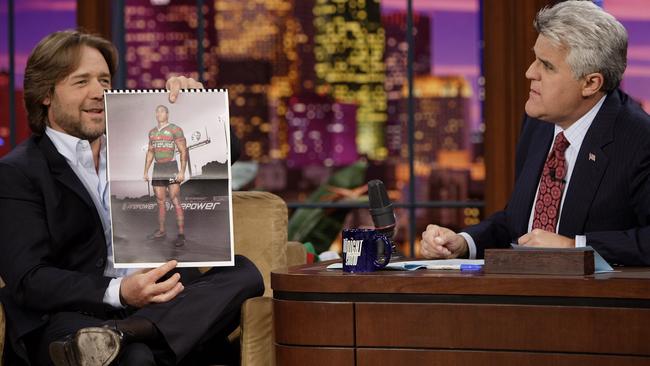
But ultimately the company would collapse and Johnston left the country, leaving behind an estimated $120 million owed to investors.
The saga had a widespread impact, but none bigger than with the Sydney Kings, who Johnston purchased in ‘07.
Sixteen years on, the effects of the Firepower debacle that sent the Kings to the wall are still being felt.
So angry was master coach Brian Goorjian that he left the NBL for a dozen years, having gone as far as travelling to Russia to try and track Johnston down.
Former player BJ Carter has revealed that the saga “ruined his life” and spoken about the dark places it has taken him.
In this special report, CODE Sports delves into the untold stories of the Firepower fallout with Australian basketball’s glamour club.
RUSSIAN FOR ANSWERS
Goorjian’s return to Sydney this season as coach has stirred vivid memories of the most tumultuous period in his Hall of Fame career.
A “furious” Goorjian used a planned Boomers trip to see big man Dave Andersen at CSKA Moscow as the perfect opportunity to track down Johnston’s Firepower office.
He went to Russia with former NBL MVP Derek Rucker, who had joined the Kings as the club’s Executive Director of Corporate Basketball Services.
I’ll never forget it – it was like an episode of Get Smart,” Goorjian said.
“The guy at the front desk looked like a KAOS agent.
“We walked up a staircase and it looked like a fold up box and the guy there was some sort of Russian diplomat.
“I’m a basketball coach, so I let Derek (Rucker) do all the business talk and I just listened. They talked for 30 minutes and then he said, ‘coach do you want to say anything?’ I replied, ‘where are the trucks? Where does it get made? He said it’s made in Perth. I went off and said I just came from Perth and there was nothing there. You’re full of garbage.
“I can’t tell you how pissed I am at this point. Everything was just smoke and mirrors.”
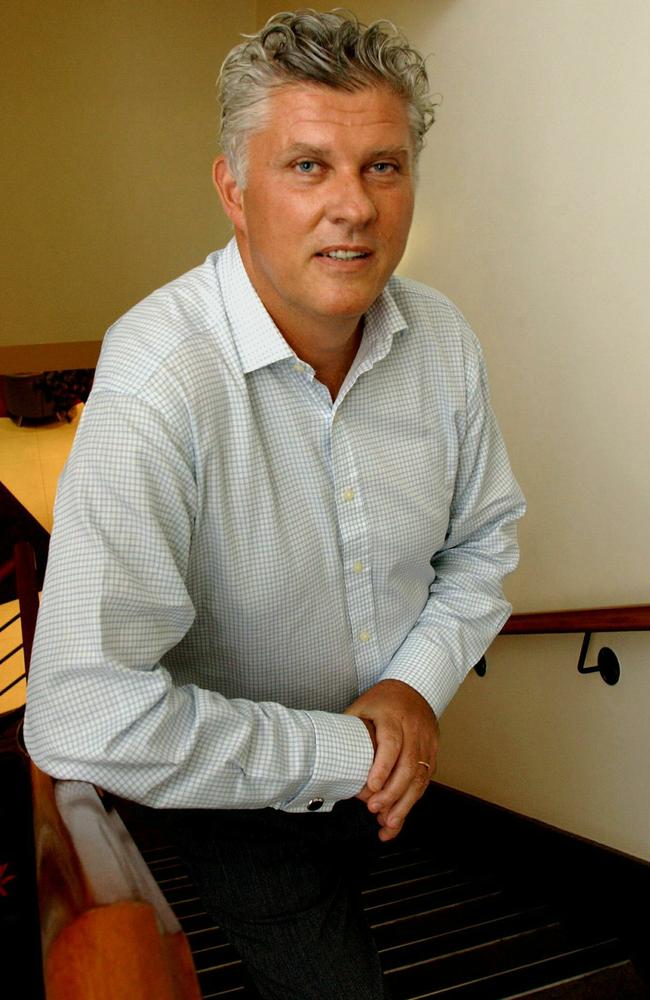
The Firepower scandal left Goorjian “shattered” and prompted him to leave the Kings and eventually the NBL for 12 years.
“The Firepower experience really put a dent in me because I struggled to front my players,” he said.
“I had to eyeball these guys every day and it broke my f…ing heart.”
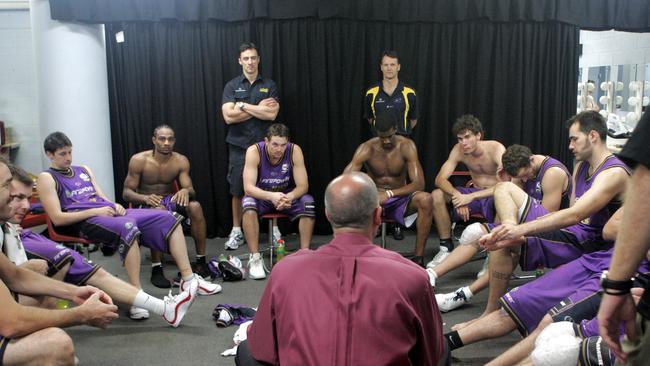
I had to eyeball these guys every day and it broke my f…ing heart.
LAVISH INTRODUCTION
Johnston came on board as the Sydney Kings’ major sponsor in 2006 and wasted no time trying to impress.
He invited Kings players and staff to his $16 million mansion, located on the banks of the Swan River in Perth.
“When we met Tim he just seemed like a knockout guy,” one Kings official recalled.
“He was wearing a t-shirt, shorts and a pair of thongs.
“Tim said we’ll look after you and if there is anything you need for the team, just let us know. I thought, ‘what a good bloke’.”
Kings guard BJ Carter also remembers feeling excited about the future under Johnston.
“Tim personally told me that I’ve got a life after basketball because Firepower is going to go global and we’ll have you involved,” Carter said.
“I was thinking, ‘I’m set for life here’.”
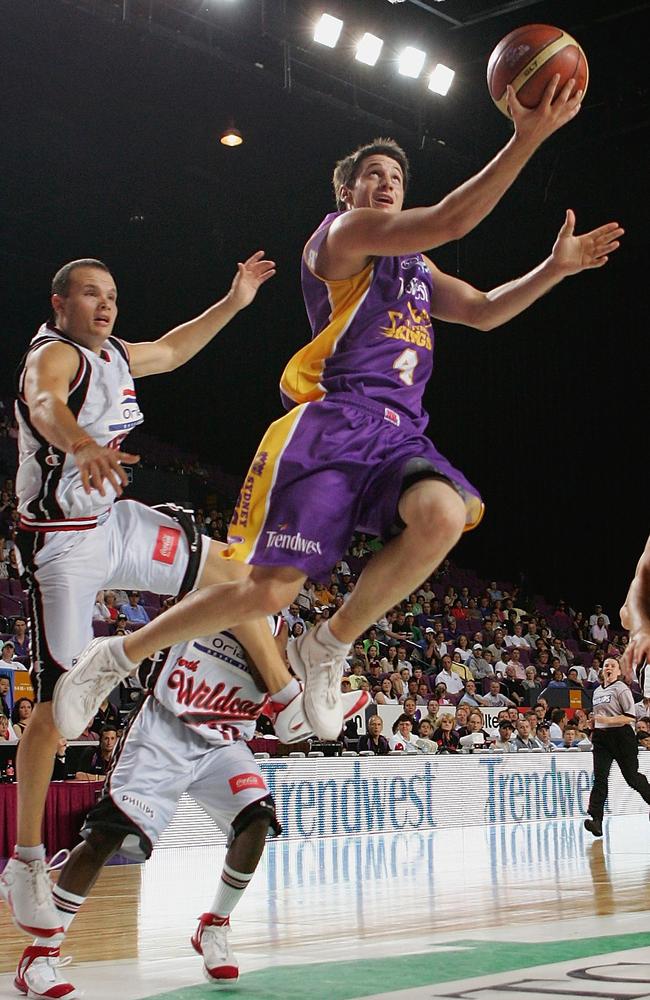
Johnston was elevated to Kings’ owner on May 15 in 2007 after the NBL board approved the transfer of the club’s license prior to the season.
Goorjian remembers then owners – Macquarie Bank – inviting him to lunch with Tim to talk business.
“Tim is good looking and had charisma right from the get go,” he said.
“He explained himself and what his Firepower company will do for us.
“You know, he could put you in the palm of his hand. He was really good on his feet and a talker.”
It didn’t take long for Goorjian to become wary.
Johnston was rarely sighted at Kings HQ, but he had multiple “strange” people connected to him who had a presence in the office and at games.
“He had all these sidekicks running around all over the place but you never saw him,” Goorjian said.
“I know how basketball works and they had no clue on what they were doing.”
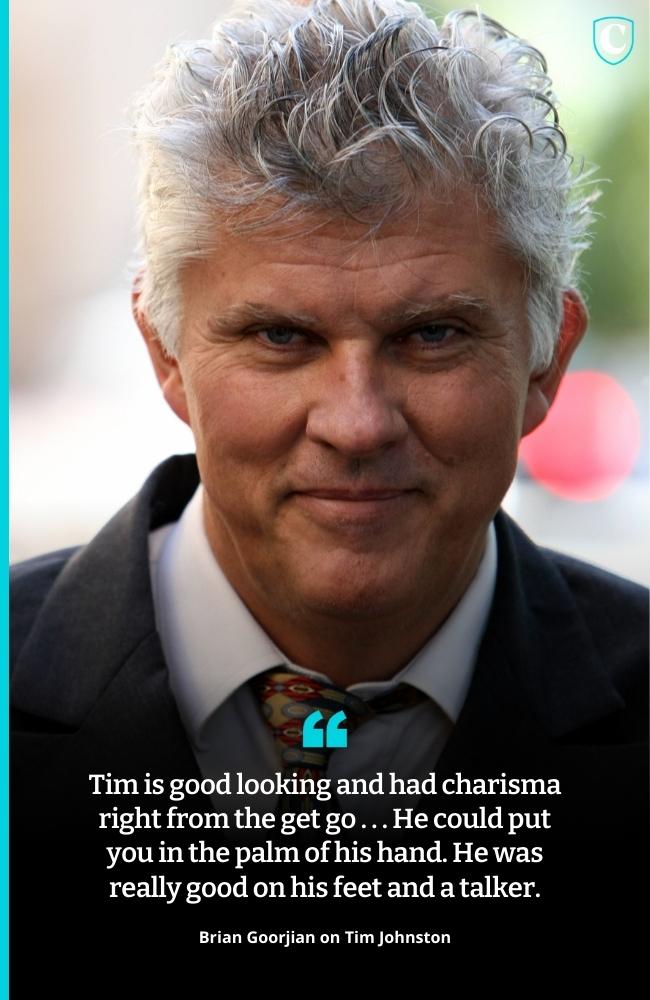
Johnston’s reign in charge of the Kings soon turned sour.
Co-owner Dorry Kordahi remembers the club’s executive director Gordon Allen pleading with him to pay money out of his own pocket to cover Sydney’s slot at the Entertainment Centre prior to the team’s round 11 clash against Perth on November 28.
Johnston’s cash stopped coming in, so Kordahi transferred $40,000 direct into the account on Thursday night so the Friday night game could go ahead.
“I had to act otherwise the game would have been called off,” Kordahi said.
Around the same time, monthly player and staff payments didn’t come through.
Officials had to chase Johnston or his wife every month for a cheque.
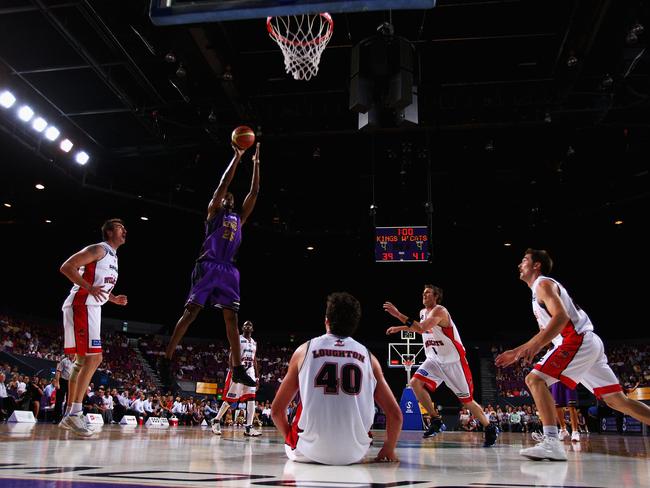
“It was cat and mouse all season,” one official recalls. “Every month the players would worry about their pay because it was always late.”
It was a theme that continued into the New Year and Goorjian recalls “everyone feeling the pinch”.
“I realised we’ve got a lot of guys with young families,” he said.
“These guys like BJ Carter are living paycheck to paycheck.”
Goorjian felt helpless. All he could do was reassure his players as the delay in pay went into a sixth week.
Naturally, the players started to lose their patience, making training sessions tense affairs.
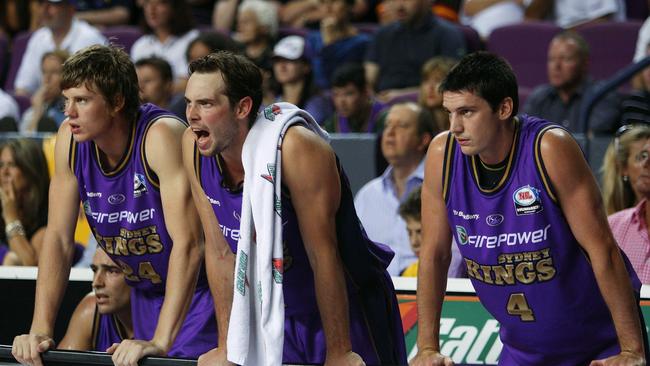
FIVE-STAR AIRPORT TALKS
Johnston was a “ghost” for weeks on end until one day in the middle of the season he turned up unannounced asking for all players and staff to meet at the Qantas club at Sydney airport.
He organised a private room inside the lounge with lavish food and drinks.
Johnston was on his way to Russia via a stopover in Sydney and wanted to ease tensions with pay three weeks late.
“Everyone at the club was in a really bad way, but he (Johnston) got up and calmed the whole thing down,” Goorjian recalls.
“He talked about everyone being secure and this is going to be the best. It settled everything down for a week or two.
“Then in the middle of it he got up and left. Where is Tim? Oh he is flying to Russia.”
Johnston’s attempt to reassure lasted just weeks, with no money coming through in the next pay cycle.
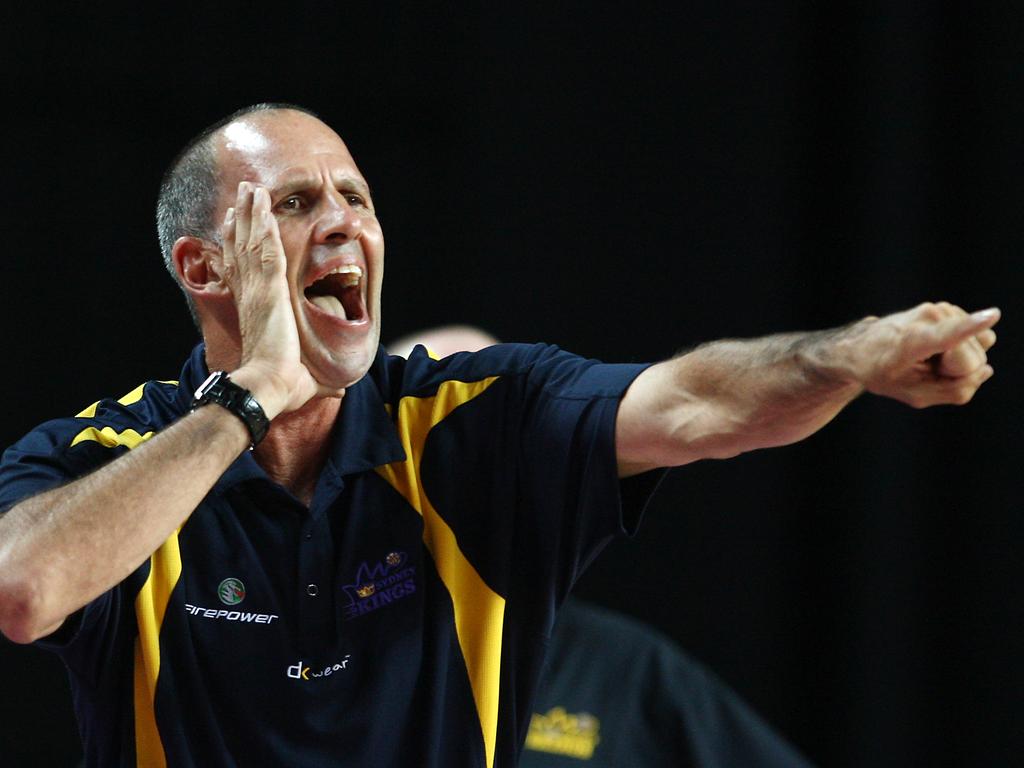
One Kings staff member was paying bills on his personal credit card.
The money got reimbursed, but his wife soon cracked down on him and said he couldn’t keep doing it.
Towards the end of the 07-08 season the Kings played the Tigers in Melbourne.
Normally Firepower would provide a cheque to pay for the hotel accommodation, but one official refused and instead provided cash.
Team officials allege that Firepower pocketed merchandise money and other club profits and kept it in a drawer in the club’s inner city office, but players weren’t being paid.
One official stumbled across the money in the drawer, but didn’t think anything of it at the time.
“That money kept them (Firepower) surviving for a while,” one official said.
QUIT OR KEEP PLAYING
No pay for months on end turned Kings players angry and it prompted Goorjian to take action.
The team was struggling to concentrate at training.
Goorjian had no clarity on when the payments would happen, so he called a friend within the Western Force rugby union organisation – also sponsored by Firepower – hoping for answers.
“I asked, ‘what am I dealing with here?’ And he basically said get out. The words were strong.”
Goorjian immediately returned to training and called all the players into a meeting.
His message was simple: We can quit now and I won’t blame you or I’ll stay and help you guys finish the season on a high.
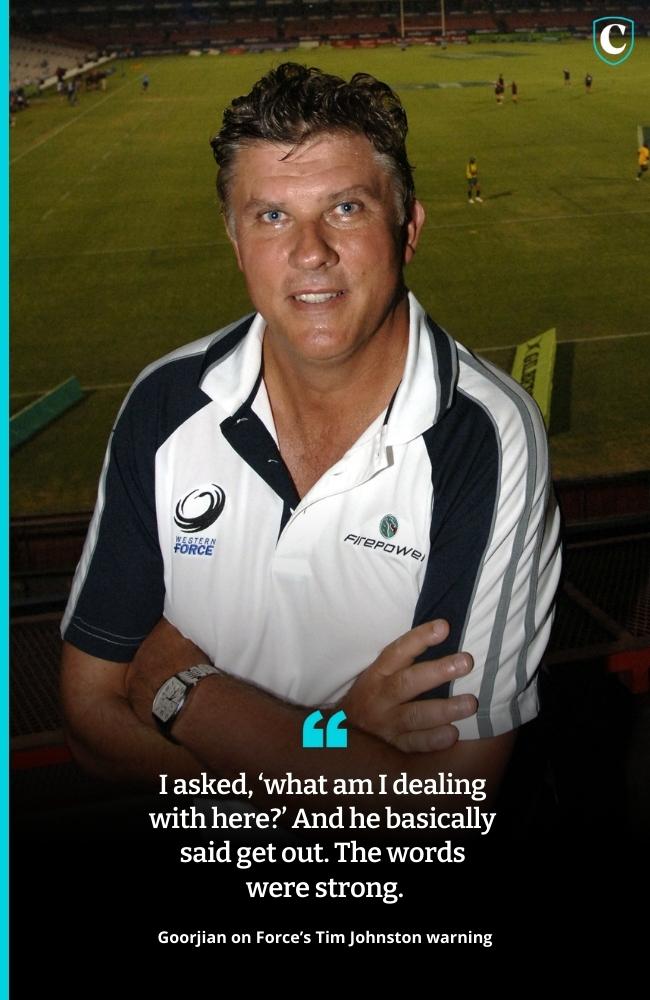
Some Kings players wanted to leave on the spot, but Carter said they opted to stay after Goorjian’s passionate address.
“Goorj sat us down in a room and he said, ‘look, when you go to a job and they don’t pay you, you quickly work out if you want to keep going or not,” Carter said.
“He said, ‘you guys have a choice. If you want to stop playing, you can because you don’t have to.”
Goorjian recalls the relief he felt when the players opted to keep going.
“I walked out to let the players talk and when I returned they said: ‘Bugger it, coach, we’re in and we’re going to win the thing’,” he said.
“So, we put our hands in and played it out and that said a lot about our playing group.”
Sydney finished that regular season in first position with a franchise best 27-3 record.
As the Kings went on an incredible run on the court, Johnston was understood to be in discussions to re-sign as owner.
“Then all of a sudden he (Johnston) just left,” Carter recalls.
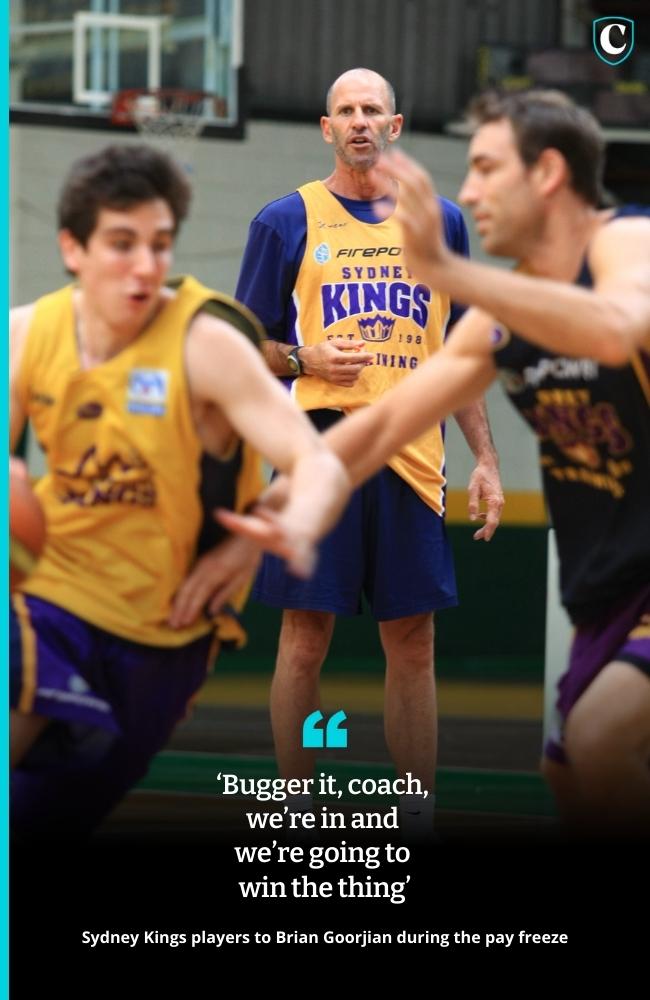
Another club official was on an in-season break when his phone rang endlessly with players saying: “We haven’t been paid. What is going on?
The official tried to reassure the players that everything would be alright and Johnston was getting overseas sponsorship and people would be paid.
“But the money never got paid and Johnston soon cleared out,” one Kings official said.
Goorjian did his best to track down Johnston.
He attended the Firepower office in Perth while in the west for an away game against the Wildcats, only to be told that the company’s factory operations were in Russia.
“I was furious,” said Goorjian of the response, which led to his eventual trip to Russia and ultimately a wild goose chase.
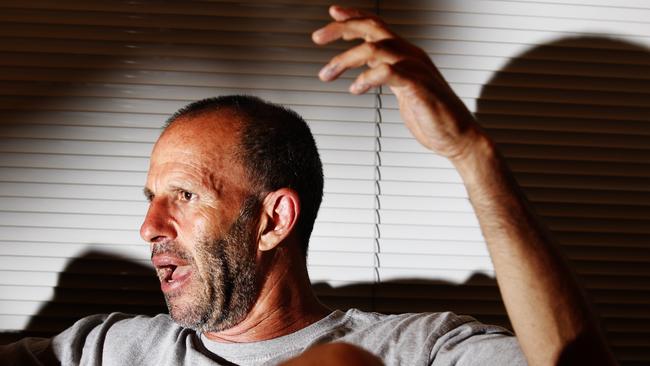
I was furious.
BITTER ENDING
The Kings players, staff and officials showed remarkable professionalism to reach the end of the regular season on top of the ladder.
The frustration spilled over in the club’s final home game against the New Zealand Breakers.
Goorjian recalls Firepower officials and their connections turning the game day atmosphere into a “circus”.
“The boxes behind the bench where we played were like a brothel,” he recalled.
“There were chicks, whisky and it’s crazy. All of a sudden there is a different clientele. Everyone is drinking hard, mixed drinks and everyone is getting smashed and it is just weird.”
The club usually holds its awards in a function after the final home game, but Firepower officials decided to do it on the court post-game.
Kings forward Mark Worthington won the MVP and received an all expenses paid around the world first-class ticket.
Goorjian will never forget the anger on Worthington’s face.
“I remember shaking Mark’s hand and as he walked past me he ripped the certificate in half, threw it in the trash and looked at me and said: ‘It’s all bullshit’.”
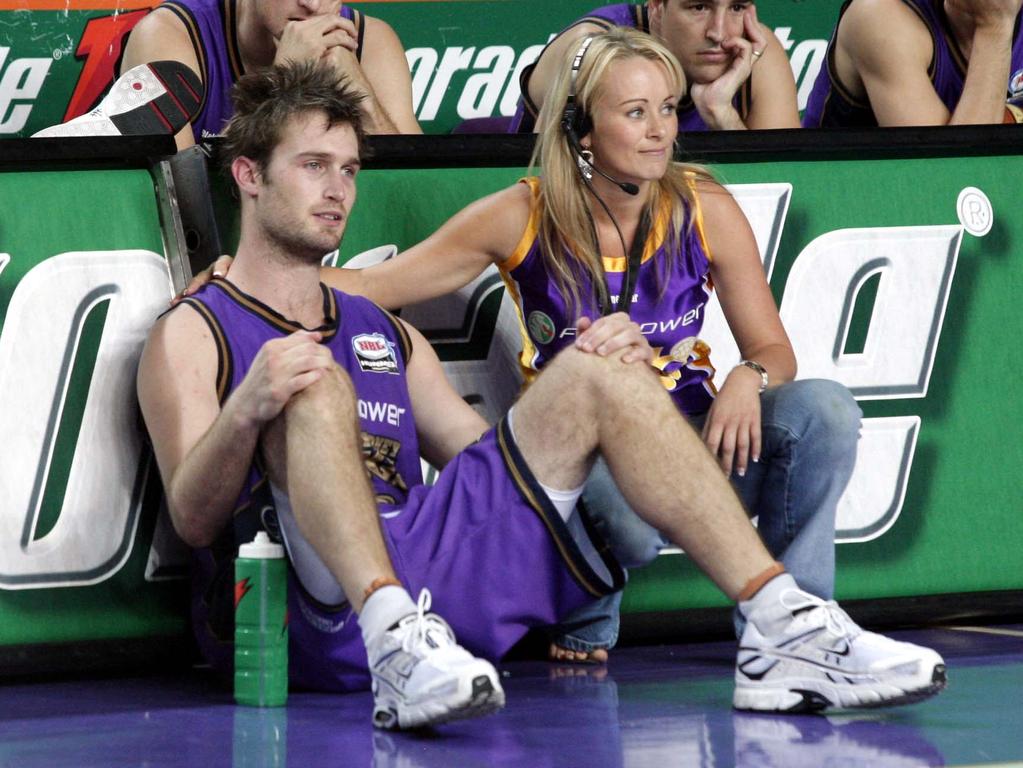
Sydney reached the grand final series against the Tigers and fought bravely to force a Game 5 after being down 2-1 in the series, but failed to deliver at home in the deciding clash.
Just 10 days after Sydney’s season ended, Goorjian announced he was quitting the club.
He remembers respected Kings figures, including legendary owner Mike Wrublewski, pleading with him to stay.
Goorjian also had to deal with Firepower officials refusing to let him out of his contract and threatening court action.
But the veteran mentor stood his ground, even to his mate Wrublewski.
“I remember saying to Mike: ‘I don’t want to know about it – I’m gone,” he recalls.
On June 12 in 2008, the NBL terminated the Sydney licence as Firepower collapsed and the club was unable to pay player salaries.
Club officials remained hopeful the Kings could stay alive with Kordahi and former owner Harry Cousens pushing a bid to take over the club, but it didn’t eventuate.
Kordahi remembers the meeting at the old NBL office near Sydney airport.
“It was a cowboy league. We went into the NBL office and they said the league would be fine without a Sydney license. I said ‘you’re kidding me’.”
Kings players and staff were also left fuming after it emerged the NBL knew Johnston was hurtling towards financial ruin and did nothing to stop it because he would come up with funds at the last second.
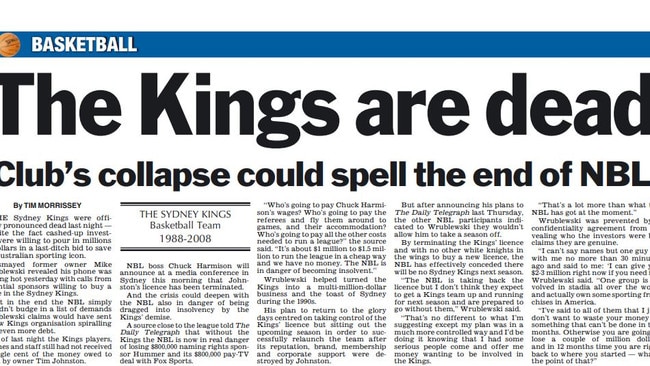
FIREPOWER’S SERIOUS IMPACT
Sydney’s demise following the Firepower drama came at the worst possible time for everyone involved, but none more than back-up guard Carter.
He lost his career, marriage and fell into a dark state of depression.
“That (Firepower) f…ed me up – I’ll never forgive him (Tim Johnston) and I’ll never get over it,” Carter says.
“It still affects me to this day. It was brutal and it ruined my life.
“It has taken me to some dark places mentally. Depression kicked in because of that and brought up a lot of childhood trauma after my dad committed suicide.
“Unfortunately for me the clearest year in my life was the Firepower year.”
Carter’s then-wife was pregnant at the time with the couple’s first child.
He had also just purchased his first property and signed a three-year deal – the longest in his career.
Carter was thinking, ‘life was great’, until his world came crashing down when he received a phone call to say the Kings had gone into liquidation.
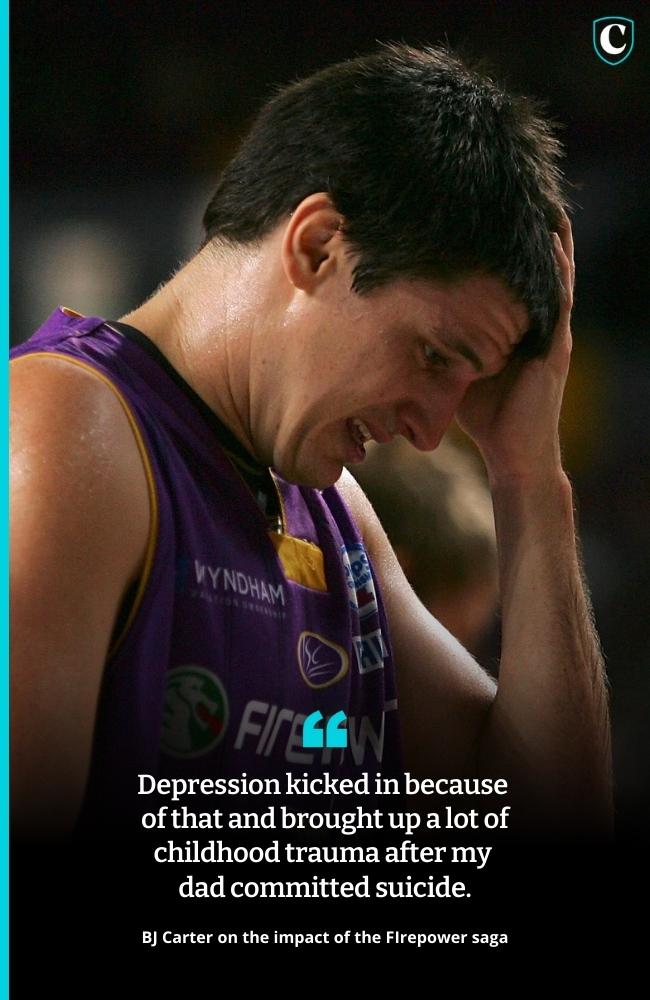
“I had no income coming in, I had a baby on the way and our life got turned completely upside down,” he said.
Carter says he didn’t handle the reality of life without basketball and it dropped him to the “lowest of lows”.
“I worked for every bit of success I had and I’d finally had a bit of luck under the best coach and on what I thought was the best team,” said Carter, who also recalls the Kings doing promotions on navy ships in Sydney Harbour as part of Johnston’s plan to get Firepower into the Australian Defence Force.
“I didn’t get to play again, I lost my career and I’m getting emotional talking about it now because it f…ed me up more than anyone will ever know.”
To this day, Goorjian has a close connection with Carter.
“BJ was going to be a basketball lifer and he was like my son,” he said.
“He lost his father and we had many heart-to-hearts about life.
“I cared about him like he was my son. It (Firepower) had a lasting impact on his life and it continues today.”
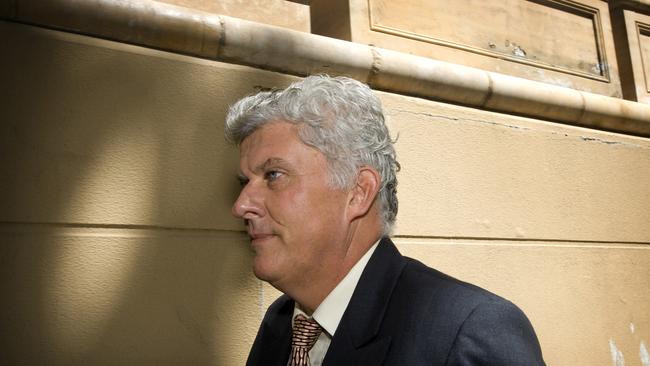
I’ll never forgive him (Tim Johnston) and I’ll never get over it,” – BJ Carton on Tim Johnston.
WHERE IS JOHNSTON?
Post the Firepower debacle, Kings players would regularly catch flights to the Gold Coast after hearing that is where Johnston was located in his family’s $3 million mansion.
The likes of Mark Worthington would walk the streets of Queensland’s glitter strip hoping to run into the Firepower boss.
Creditors, liquidators and shareholders in Firepower believed Johnston was living in either the Philippines, Bali or Britain.
He was last interviewed on September 26, 2008 when The Australian newspaper traced him to a $442-a-night rented apartment in the Marriott Hotel in London.
Johnston had planned to work in Europe “for at least a year” for a new firm in a mid-ranking role, and said he was sure that Firepower’s shareholders “will be looked after”.
“You will see: we will eventually be vindicated and our investors will be well rewarded,” Johnston claimed.
“I have read this stuff about me fleeing to all sorts of places, but I have been based right here in London for almost two years.”
Perth-based liquidator Bryan Hughes remained deeply sceptical, saying: “If that is true, then why has Johnston disappeared for two years and refused to even answer phone calls, let alone tell us where all the money has gone?
“He has refused for a very long time to co-operate with us or attend creditors’ meetings or even let anyone know where he is.”
Code Sports contacted Hughes to ask if he knew where Johnston was located.
“I’ve got no idea where Tim is – none whatsoever,” Hughes said.
“Last I heard he was somewhere in Queensland, but that was years ago.
“Even though we did manage to bankrupt him at the end of the day.
“I don’t think enough pain was inflicted on that man. He was a bad egg.”
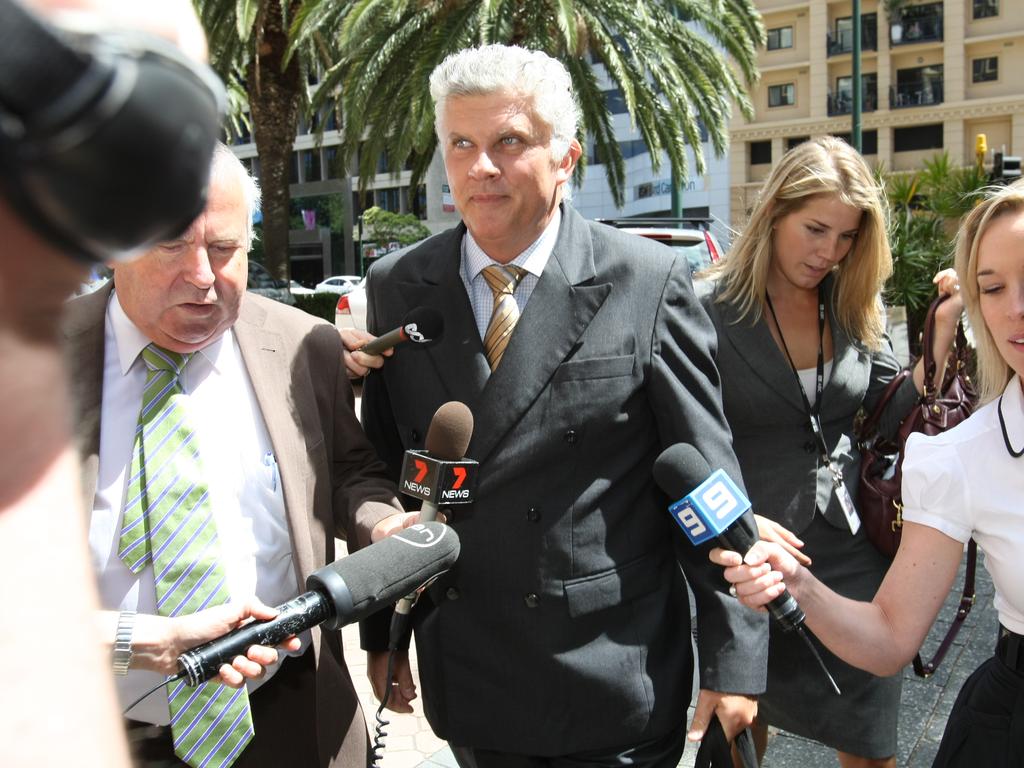
No criminal charges have been laid against Johnston, but in 2011 ASIC disqualified him from managing a corporation for 20 years.
Carter doesn’t know or care where Johnston is located.
“I have no clue and it is good for my sanity,” he said.
Goorjian can’t help but shake his head every time the word Firepower is mentioned.
“I’ve never seen a guy in my time that was better on his feet than Tim,” he said.
“Here is a guy who walks in and everyone wants to stab a knife in his back, but when the knife is finished he still has everyone eating from the palm of his hand.”

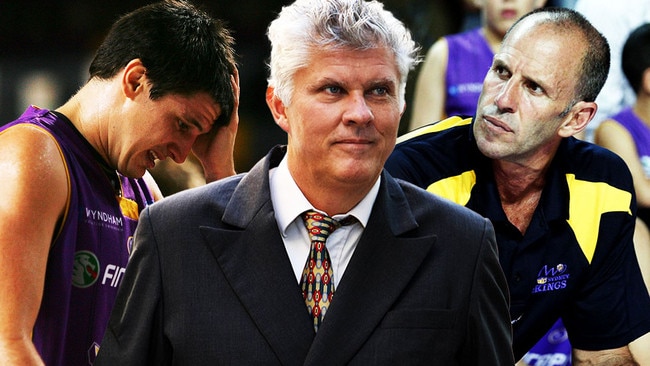
Add your comment to this story
To join the conversation, please log in. Don't have an account? Register
Join the conversation, you are commenting as Logout
Roman’s empire: Hoops prodigy who snubbed NBL, rugby
Roman Siulepa had the sporting world at his feet — he could have played rugby or in the NBL. Instead, he’s off to Pittsburgh to play college basketball. Matt Logue finds out why.
Landale: Olympic heartbreak didn’t sting until my wedding day
Standing at the altar about to say his vows, Jock Landale looked at the crowd. For a fleeting moment on his special day, what the Boomers Olympian saw brought thoughts of the “sting” of Paris.